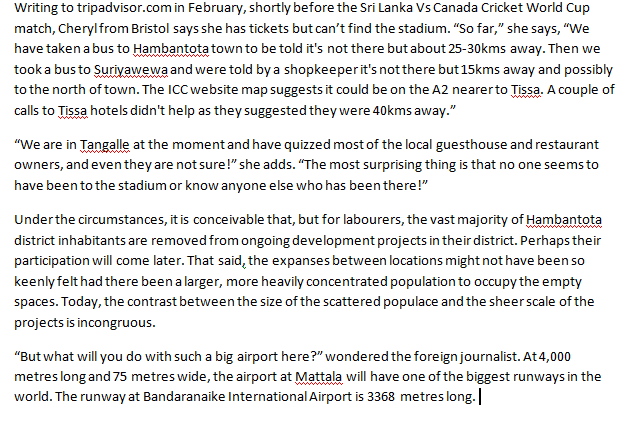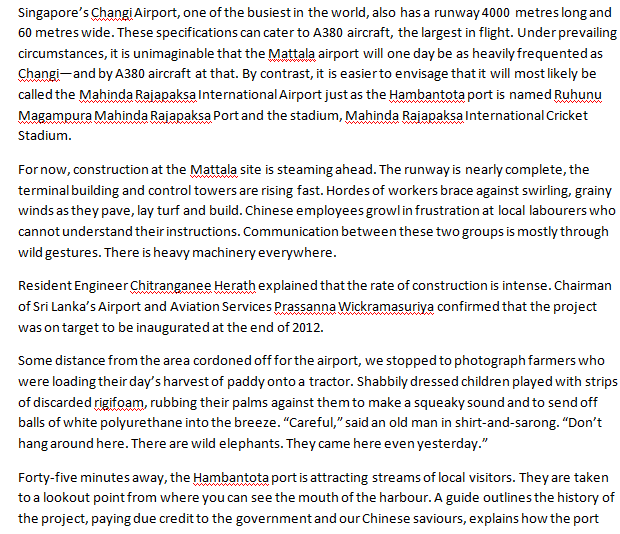
This is a long thread, but worth it if you want insight into the #UNP's governance structure and what's going on in #SriLanka now.
In the late 2000s, I edited a report on inner-party democracy (citation at the bottom of the thread). Here's what stayed with me:
In the late 2000s, I edited a report on inner-party democracy (citation at the bottom of the thread). Here's what stayed with me:
At its founding in 1946, the UNP convention was vital. It comprised delegates elected by the members of branches which were the UNP’s basic units. The convention appointed the leader and secretary. The 16-chapter constitution adopted after 1977 is starkly different.
The membership lost the right to elect its leader. All major decisions were to be taken by the leader or committees appointed by him. It contains no provisions to remove an incumbent leader. And all members of the working committee today are the leader’s nominees.
The leader has total authority to appoint and replace all office-bearers. The constitution does not mention the appointment of the leader. But Article 8 states that, whenever a vacancy arises in the leadership, the national executive committee must fill it.
That power, however, could be delegated to the working committee. The deputy leader, assistant leader, party chairman, general secretary and treasurer are appointed by the leader. Their powers, too, are determined by him.
All other officials are appointed on the recommendation of the leader. The UNP has committees to facilitate party functions. The political affairs committee is chaired by the leader and has 13 members appointed by the leader.
The deputy leader, chairman, general secretary and deputy general secretary and national organizer are ex-officio members. The leader appoints eight other senior MPs as members. The media and publicity committee meetings are chaired by the leader.
The management committee is chaired by the deputy leader. The chairman, general secretary, deputy general secretary, treasurer and vice chairman in charge of legal affairs are members.
Hierarchically, the party convention is the highest body followed by the national executive committee and working committee. Branches are the smallest unit.
They are connected to electorate-level ‘kottasha balamandala’ (electoral organizations) and district-level ‘district balamandala’ (district organizations). The youth, women and other affiliated organizations connect up at different levels.
In the UNP, almost all powers are constitutionally concentrated within the top leadership. While critical decision-making powers are vested in the working committee, it is the leader that appoints its members.
Just as there is no provision for a leader’s replacement, there is no entity or mechanism to challenge his powers. People appointed by the leader exclusively handle financial operations.
Through the working committee, the leader selects nominees for elections and directly appoints chairmen to kottasha balamandala. While the party has an established multi-layered structure, the working committee exerts control over it.
The diversity of the membership is only reflected by the youth and women’s organizations. There are just three affiliates: trade unions, professional and foreign organizations. Anyone can be a member but there is no mention of their rights.
And party membership does not appear to be a precondition for holding office in the UNP. Delegation of powers is confined to appointment of committee. Some powers are distributed to office bearers. There is no provision at all for devolution of power.
There are no provisions to ensure transparency and accountability in the decision-making process.
The working committee is entrusted with practical administration. Technically, it is the representative body of the national executive committee.
The working committee is entrusted with practical administration. Technically, it is the representative body of the national executive committee.
Practically, it exercises authority over the party because it meets more often. To recap: Since there is no provision in the constitution for the removal of a leader, he or she may remain there for life. The leader appoints all office bearers including the deputy leader.
All appointments to the working committee--in practice, the highest decision-making body, are made by the leader. All district and electoral leaders as well as officials of affiliated organizations are appointed by the leader.
Source: 'Research Report on Inner-Party Democracy, Accountability and Transparency' published by South Asia Peace Institute. Researchers: Shiral Lakthilaka, Charitha Herath and Saman Senadheera.
• • •
Missing some Tweet in this thread? You can try to
force a refresh







